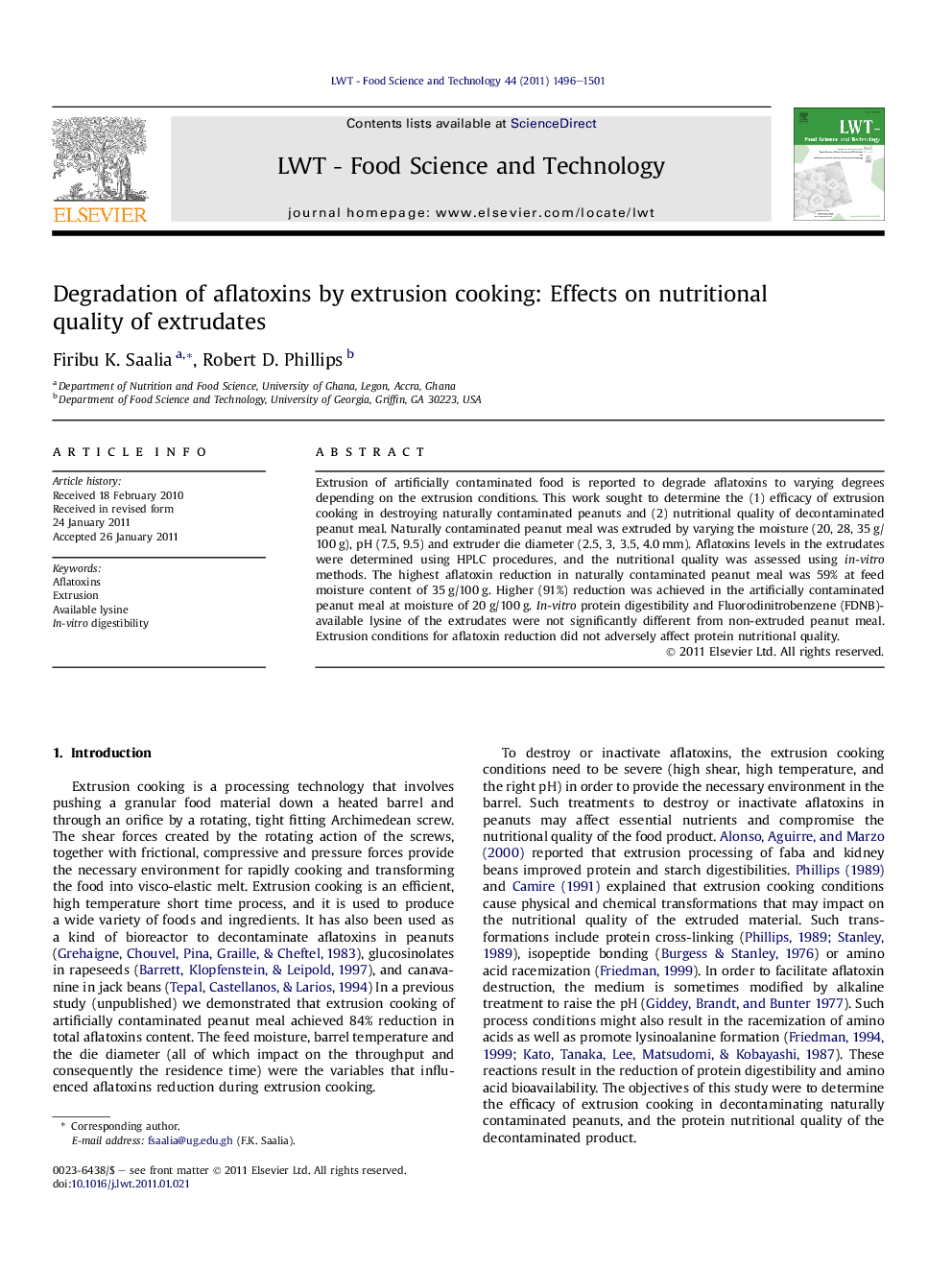| Article ID | Journal | Published Year | Pages | File Type |
|---|---|---|---|---|
| 4564017 | LWT - Food Science and Technology | 2011 | 6 Pages |
Abstract
Extrusion of artificially contaminated food is reported to degrade aflatoxins to varying degrees depending on the extrusion conditions. This work sought to determine the (1) efficacy of extrusion cooking in destroying naturally contaminated peanuts and (2) nutritional quality of decontaminated peanut meal. Naturally contaminated peanut meal was extruded by varying the moisture (20, 28, 35Â g/100Â g), pH (7.5, 9.5) and extruder die diameter (2.5, 3, 3.5, 4.0Â mm). Aflatoxins levels in the extrudates were determined using HPLC procedures, and the nutritional quality was assessed using in-vitro methods. The highest aflatoxin reduction in naturally contaminated peanut meal was 59% at feed moisture content of 35Â g/100Â g. Higher (91%) reduction was achieved in the artificially contaminated peanut meal at moisture of 20Â g/100Â g. In-vitro protein digestibility and Fluorodinitrobenzene (FDNB)-available lysine of the extrudates were not significantly different from non-extruded peanut meal. Extrusion conditions for aflatoxin reduction did not adversely affect protein nutritional quality.
Related Topics
Life Sciences
Agricultural and Biological Sciences
Food Science
Authors
Firibu K. Saalia, Robert D. Phillips,
